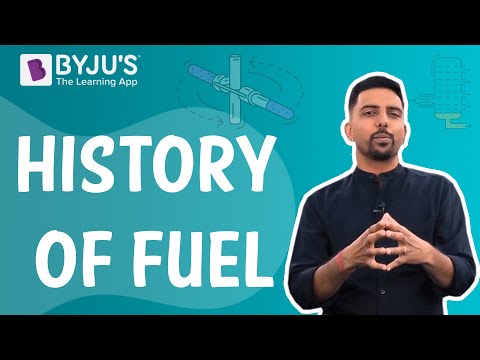The primary components of liquefied petroleum gas (LPG) are propane, butane, propylene, butylene, and isobutane. LPG is a highly flammable mixture of these hydrocarbon gases which is widely used as a fuel in household cooking applications. It is also used as a fuel in some automobiles. The most active components of LPG are propane and butane. A brief description of the composition of LPG is provided in this article.
Table of Contents
Propane
Propane is a hydrocarbon with the chemical formula C3H8. It is one of the primary components of liquefied petroleum gas. This organic compound is known to exist in the gaseous phase under standard conditions for temperature and pressure (STP). However, propane can be compressed into a liquid if a sufficient amount of pressure is applied. It can be noted that propane is usually produced as a by-product during the refining of petroleum and the processing of natural gas.
When released from its pressurised container, propane is known to quickly undergo vaporization. This is because of the relatively low boiling point of propane (roughly equal to -42.2 degrees Celsius). Furthermore, it can be noted that the melting point of propane is equal to -187.7 degrees Celsius or 85.5 Kelvin. The molar mass of propane is 44.097 grams per mole. Under standard conditions, it is a colourless and odourless gas.
Butane
Butane is an organic compound with the chemical formula C4H10. This hydrocarbon is one of the flammable compounds used in LPG. Butane, under standard conditions for temperature and pressure, exists as a colourless gas having a smell similar to that of natural gas or gasoline. However, butane can be compressed into a liquid for relatively easy transportation. The two structural isomers of butane are n-butane and isobutane. The former features a four-membered straight chain of carbon atoms whereas the latter features a branched structure. It can be noted that isobutane is also known as methylpropane.
The molar mass of butane is equal to 58.124 grams per mole. The melting point of this organic compound is known to range from -140 degrees Celsius to -134 degrees Celsius. The boiling point of this hydrocarbon lies in between -1oC to 1oC.
Isobutane
Isobutane, also known as 2-methylpropane, is an organic compound with the chemical formula CH(CH3)3. This compound is a structural isomer of butane and is one of the components of LPG. It is important to note that the melting and boiling points of butane and isobutane are not the same. The melting point of isobutane is equal to -159.42 degrees Celsius and the boiling point of this isomer of butane is -11.7 degrees celsius. It can also be noted that isobutane is often used as a propellant in aerosol cans.
Propylene
Propylene, also known as propene, is an organic compound with the chemical formula C3H6. This unsaturated hydrocarbon contains one carbon-carbon double bond. It is often employed as a component of LPG.
The molar mass of propylene is 42.081 grams per mole. The boiling point of this organic compound corresponds to -47.6 oC. The melting point of propylene is equal to -185.2 oC. Under standard conditions, propylene is known to exist as a colourless gas. However, it can be noted that this gas can be compressed into a liquid.
Butylene
Butylene, also known as butene, is an organic chemical compound whose chemical formula is C4H8. Butene is known to have many isomers since the double bond can be present at multiple points in the four-membered parent carbon chain. The most prominent isomers of butylene are 1-butylene, 2-butylene, and isobutylene.
It can be noted that all isomers of butene listed above exist in the gaseous phase under standard conditions for temperature and pressure (STP).
Recommended Videos
History of Fuel

To learn more about LPG composition and other related concepts, such as the difference between CNG and LPG, register with BYJU’S and download the mobile application on your smartphone.

good content